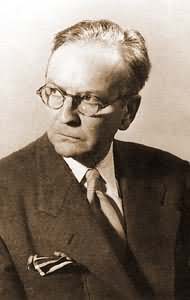Attached

“For the very nicest thing Hollywood can possibly say to a writer is that he is too good to be only a writer.”
–Raymond Chandler, 1945
Many years ago a feature writer who’d made the successful move to directing his own scripts asked me if I intended to direct. I tap-dance about how I wasn't sure if it was something I wanted to do. He listened, nodded, and said, “You will. You may not want to, you might not enjoy it, but you will. Simply to protect the work.” He said this so calmly I thought he was tossing me a cliché. Later I realized it was a cosmic truth.
Writers wail about the loss of control when a director goes to work, but I wonder if this loss is actually part of a silent bargain. We give up control in exchange for not having to do all the hard work of directing. Especially the need to confront, cajole, praise, reproach, motivate and discipline a large number of widely different people, often very early in the morning. Directing entrails social and political skills many of us became writers expressly to avoid ever having to develop.
I’ve worked with directors who were my creative partners. I’ve worked with directors I wouldn’t trust to mow my lawn. And I’ve been shown the door when a director comes on board and begins making “A Film By…” by throwing out the writer.
The good experiences have been with directors who understood their job was to interpret the text. They were smart, hard-working, secure individuals who taught and encouraged. The bad experiences let me to another cosmic truth: “I’m as qualified to screw up my scripts as any stranger.” With this bold affirmation, I moved toward directing.
One thing that made it easy for me is that the business expects writers to want to direct. Many assume the only reason someone becomes a writer in the first place is to become a director, as if being a writer were some kind of wormy, larval state directors had to pass through before becoming Monarch butterflies.
I write slouched in a comfortable chair, the room quiet and dim, a yellow pad propped up on my knees. My first day as a director, I didn’t feel like Preston Sturges, finally becoming “a Prince of the Blood.” I felt like Boo Radley, yanked out of his warm basement and put in charge of the landing at Omaha Beach.
Directing is the hardest work I’ve ever done. It’s a sophisticated and stressful management position in the service of intangibles requiring a different set of muscles and a different set of verbs from those normally used by writers.
Writing and directing are both about esthetic choices; the difference is in how those choices are realized. When you write there’s nothing between you and the page–the work flows out of your head and onto the paper. But directing requires other people and processes to make the esthetics real. The beautiful thing about directing is how it takes art and breaks it down into a sequence of technical tasks and clearly defined goals. So many decisions have to be made so rapidly that you’re compelled to lean on your Zen without excessive intellectualizing. For the muse to survive it has to operate on an almost subatomic level. Depending on the kind of artist you are this can either destroy or liberate you.
I found a visceral excitement in directing completely unlike the joy of writing. While there’s nothing like the nearly audible “click” in your head when a scene comes together, there’s an altogether different, and possibly more intense, feeling when you stand behind a camera during the shooting of that scene, watching and listening, reassessing what works and what doesn’t from one moment to the next. It is a feeling of satisfaction and completion.
In this way directing is a logical extension of writing, and the writer who wants to direct is interested in finished the job, not wrenching power from the Princes. Well, not primarily interested. Beyond that, directing makes you a stronger writer, a better collaborator with the good directors, and makes it harder for the bad ones to put anything over on you. You’re in the club and you know the secret handshake.
The quote at the beginning is from Raymond Chandler’s great vodka and vinegar cocktail of an essay, “Writers in Hollywood.” Go out right now and find a copy. Chandler talked about the casual abuse of writers and the “deliberate and successful plan to reduce the professional screenwriter to the status of an assistant picture-maker, superficially deferred to (while he is in the room), essentially ignored.” Perhaps, finally, that’s the real motivation behind writers seeking to direct: We simply want to stay in the room a little longer.


0 Comments:
Post a Comment
<< Home